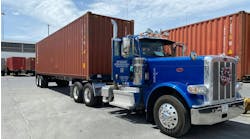As the cost of oil, along with diesel and gasoline prices, is expected to remain high for the foreseeable future, state governments are stepping up legislative efforts to promote alternative fuel use in the U.S. — especially natural gas.
Currently, 23 state legislatures are considering bills that support natural gas as a transportation fuel, with Wyoming appropriating $200,000 for its Dept. of Transportation and Dept. of Administration and Information to retrofit or acquire vehicles in their fleets capable of running on natural gas, according to the trade association NGVAmerica.
“There is growing recognition of the growing importance state governments play in promoting alternative fuel usage,” Denise McCourt, director of communications for NGVAmerica, told Fleet Owner. “What's driving this now is the experience with oil price spikes, the realization that oil is traded as a commodity, with pricing set by the global market and subject to surges not directly related to pure supply and demand factors.”
McCourt said that the current upswing in oil prices, which is pushing diesel and gasoline costs higher, is the third such upsurge in the last six years. The first came after Hurricane Katrina in 2005 and was based largely on fears of reduced refinery capacity along the U.S. Gulf Coast, and the second occurred during the summer of 2008.
Current projections by the U.S. Energy Information Administration indicate the recent run-up in oil and petroleum-based fuel prices won't abate soon, either. The agency expects continued tightening of world oil markets over the next two years, particularly in light of the recent events in North Africa and the Middle East, the world's largest oil-producing region.


